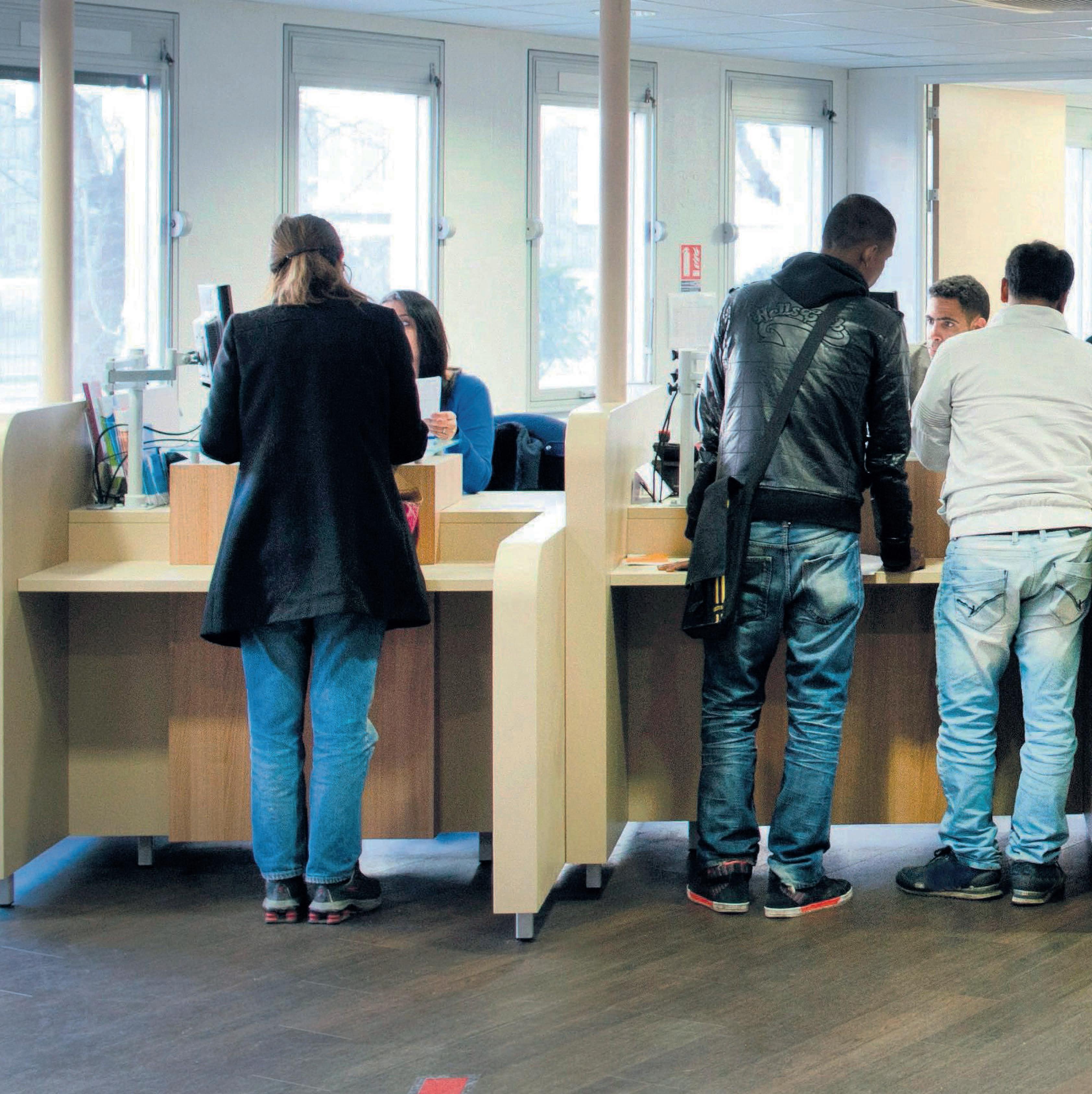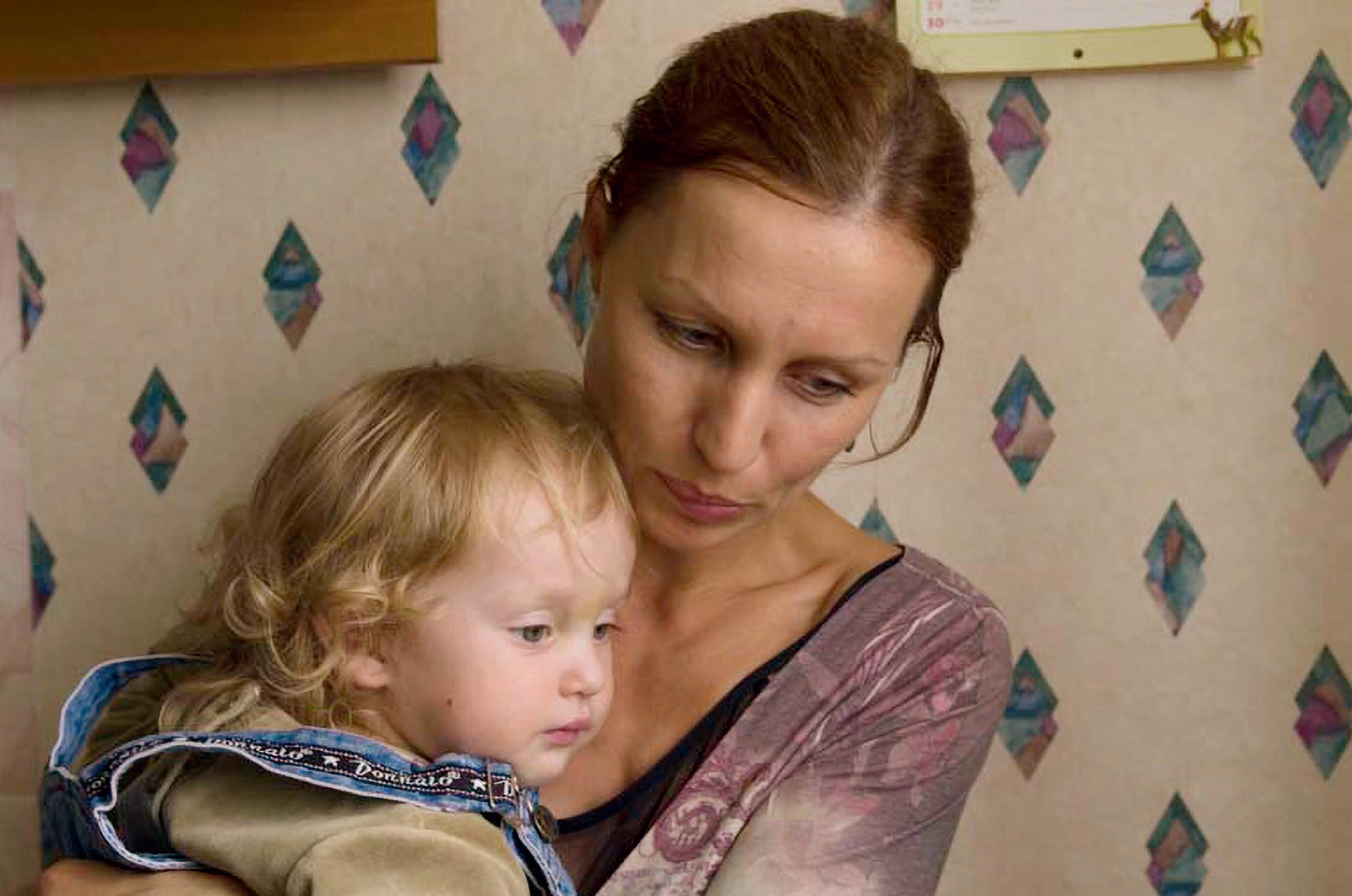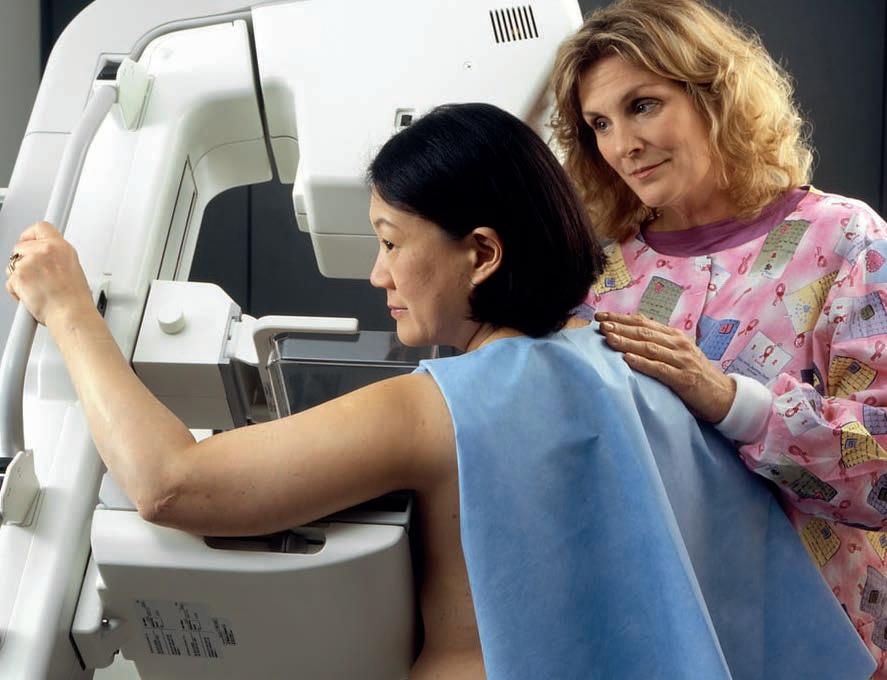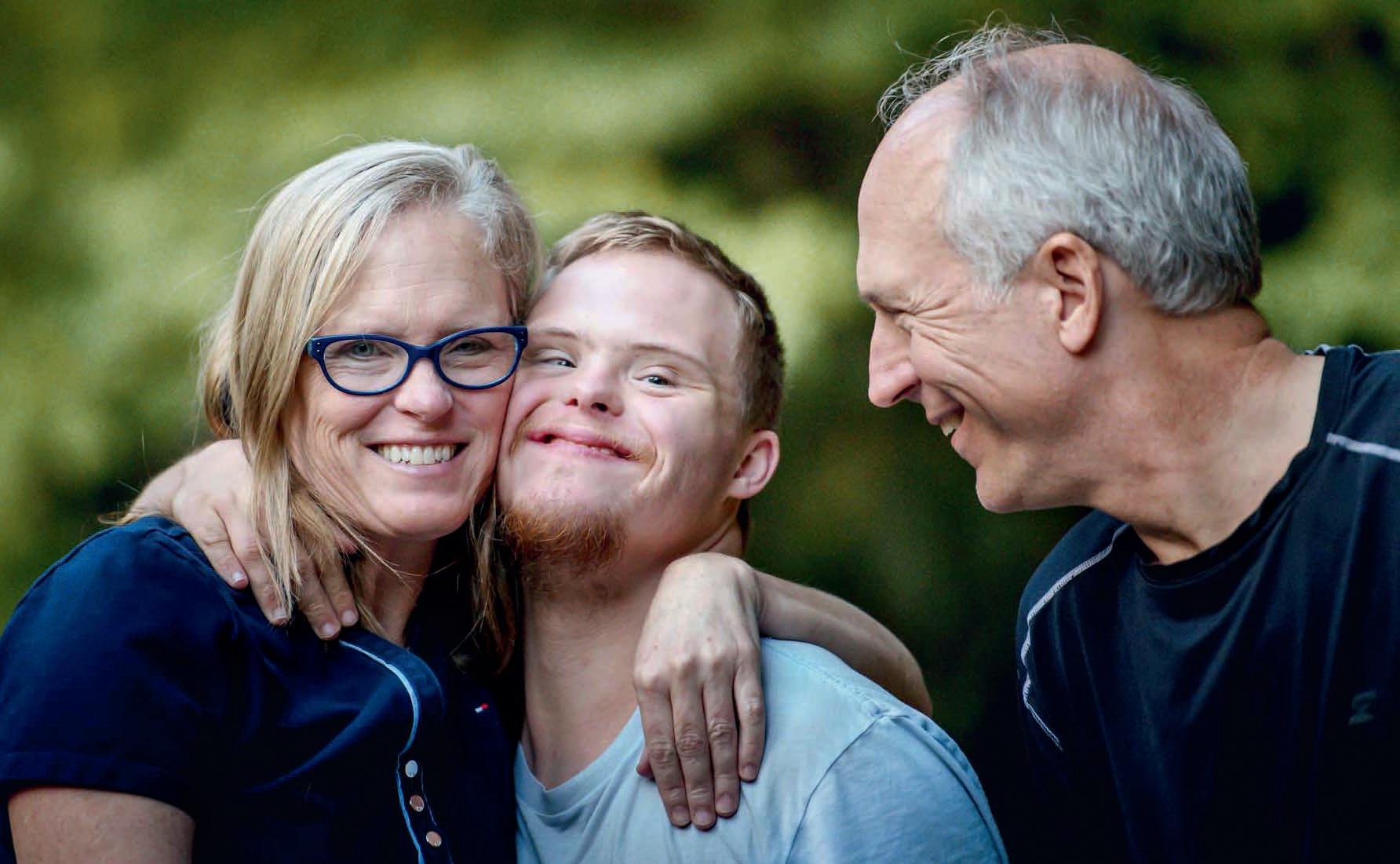
20 minute read
3.3 Chapter III: Social protection and inclusion
Europe must proceed with upwards economic and social convergence, ensure a fair distribution of economic wealth and deepen social cohesion across the Union. It must reinforce its commitment to fight poverty and social exclusion, and to eradicate child poverty.112
The Pillar needs to provide access to a social protection floor that guarantees universal access to quality health care, including sexual and reproductive health rights, basic income security, portability of all workers’ social rights and adequate pensions to everyone in Europe in order to prevent poverty and social exclusion. Social protection floors at the national level should comprise at least four social security guarantees: access to essential health care, including maternity care; basic income security for children, providing access to nutrition, education, care and any other necessary goods and services; basic income security for persons in active age who are unable to earn sufficient income, in particular in cases of sickness, unemployment, maternity and disability; and basic income security for older persons.113 A Child Guarantee should ensure no child in Europe is at risk of poverty or social exclusion.114
Advertisement
Almost 1 in 4 children in Europe are at risk of poverty and social exclusion. Inequality starts at a very young age, since the opportunities enjoyed later in life are to a large extent determined by one’s childhood. This is unacceptable. We must address this problem and give all our children a better future. Europe has a duty to support children and ensure equality of opportunity for all. This is why our political family has campaigned extensively for a European Child Guarantee to ensure that children’s rights to free and high-quality healthcare, education, quality childcare, decent housing and adequate nutrition are respected all over Europe.
3.3.1 Principle 11: Childcare and support to children
• A European Child Guarantee should be adopted and urgently implemented with a view to tackling child poverty. The Child Guarantee should ensure free quality health care, education, childcare, decent housing and adequate nutrition to all children in
Europe.115 The Child Guarantee should be fostered on the same model as the Youth Guarantee, with Council Recommendations framing the objectives on the one hand, and dedicated and adequate EU funding, of at least € 20 billion in the next MFF 2021–2027 to fit its purpose and allow effective implementation,116 .
Additional details on the funding of the Child Guarantee can be found in Annex 1.
• On top of this the EU should build on the experience of programmes like the European School Fruit and
Milk Schemes and complement them with programmes providing school supplies and parental packages including basic baby care. Funding should be ensured through the ESF+.117
• EU action against child poverty must acknowledge
the strong link between children’s welfare and
women’s empowerment, since women’s (especially single mothers’) economic status has a direct impact on child poverty.
• Child Guarantee schemes should contain local approaches targeting exceptionally exposed regions in the Member States. Such plans should be made in partnerships with the relevant stakeholders. They should be part of the National Reform Programmes, monitoring progress within the context of the
Annual Growth Survey, through specific targets for the reduction of the number of children at risks of poverty or social exclusion.118
• More detailed proposals for the implementation of the Child Guarantee are included in Annex 1.
115 PES Congress Resolution Social Europe, Lisbon 2018, p. 5; PES Election Manifesto 2019 A New Social Contract for Europe, p.3; PES EPSCO Ministerial Declaration After the UK Referendum: a Call for a More Social Europe, 15.07.2016, p. 2 116 Implementation of the Child Guarantee would require EUR 5.9 billion (see annex I) 117 PES Internal Briefing Our children, Europe’s Future, 10.09.2015; PES Working Document For a More Progressive Europe – European Commission Work Programme 2019–2024, p. 93 118 PES Working Document For a More Progressive Europe – European Commission Work Programme 2019–2024, p. 93
3.3.2 Principle 12: Social protection
A Europe of welfare with strong welfare states, social safety nets, and quality public services is crucial to preventing poverty and protecting those in need. We have a duty to protect people if they fall sick, lose their job, suffer disabilities or fall on hard times. In an ever-changing world of work, fighting inequalities means extending social protection to everyone in Europe, irrespective of their contracts or employment situation. A reliable social safety net must be available to protect everyone, including the unemployed, self-employed, atypical and crowd workers, against the hazards of their working life.

• The primacy of social rights over economic freedoms should be ensured through a European social
progress protocol.119
• The EU should continue the negotiations on the revision and implementation of the Regulation on
the coordination of social security systems.120
• The EU should follow up on the 2018 Council
Recommendation on access to social protection for workers and the self-employed. The European
Commission should undertake an evaluation of effective social protection coverage of the self-employed across the EU as a basis for a future proposal for a directive.121
• A European social security number should be introduced to ensure better traceability of citizens’ rights, enable national authorities to fight fraud or abuse.122 This would improve the portability of social rights and entitlements, supporting mobility across jobs and forms of employment.123
• Universal social protection, in which employers contribute their fair share, and applying irrespective of the type of work and sector should be promoted to mitigate inequalities in the labour market and better reflect diverse and shifting employment conditions. For social security, this means opting for neutral solutions that do not make a hard distinction between employees and self-employed workers.124 • Social security, healthcare and training should be extended beyond the employee status.125 A European social protection floor would guarantee universal access to essential quality health services and basic income security, to protect all European workers including self-employed workers.126
• Social services should be made truly universal by ensuring better access to essential services such as water, sanitation, energy, public transport, financial services and digital communications.127 [See also
Principle 20]
• Fair taxation of digitalisation should be promoted.
Social security systems are mainly financed with contributions from labour revenues. While full employment should remain the ground for our pension systems’ sustainability, new sources of funding should also be sought through fair taxation, notably on new sources of added value.128
119 PES Presidency Declaration Call for the Progressive Revival of Europe, 13.03.2017, p. 3 120, 121, 123 PES Working Document For a More Progressive Europe – European Commission Work Programme 2019–2024, p. 79 122 PES Draft Briefing on a EU Social Security Number for the PES Social Europe Network meeting of 25.01.2017 124 PES Working Document For a More Progressive Europe – European Commission Work Programme 2019–2024, p. 75 125 PES Brochure Combating Inequality in the European Union, 2018, p. 23 126 PES EPSCO Ministerial Declaration A Social Turn for Europe, 22.10.2017, p. 2 127 PES Working Document For a More Progressive Europe – European Commission Work Programme 2019–2024, pp. 79–80 128 PES Working Document For a More Progressive Europe – European Commission Work Programme 2019–2024, p. 80
3.3.3 Principle 13: Unemployment benefits
“The unemployed have the right to adequate activation support from public employment services to (re)integrate in the labour market and adequate unemployment benefits of reasonable duration, in line with their contributions and national eligibility rules. Such benefits shall not constitute a disincentive for a quick return to employment.”
Unemployment is all too often seen as an individual failing and active labour market policies as a budgetary burden, but unemployment it is a problem that must be tackled collectively. As a society we have a duty to help people that lose their jobs and provide opportunities for re-entering the labour market. A reliable social safety net must be available to protect everyone in Europe against the hazards of their working life. Income security is essential.
• A complementary European unemployment benefit reinsurance scheme should be created to support
Member States national unemployment benefit systems in the event of a large increase in unemployment.129 It should act as an automatic stabiliser and play an important role in reducing inequality between countries, absorbing shocks.130 To achieve this, the EU’s fiscal capacity should be improved.131
The setup of the European instrument for temporary
Support to mitigate Unemployment Risks in an
Emergency (SURE), in the context of the COVID-19 crisis, should not preclude the establishment of a permanent scheme, available to protect at least the
Euro area from future crises.
• This scheme should also provide allowances where unemployment is prevented through temporarily reduced working hours, combined with training, such as “Kurzarbeit” or “chômage technique”. • Such schemes should be developed through social dialogue to help to maintain quality employment even in times of downturn and lack of work.132
• The setting of EU-wide minimum standards for
national unemployment schemes in terms of coverage, adequacy, the right to training and the duration of entitlements133 are an important addition to the introduction of a European unemployment
reinsurance scheme. Such standards would ensure that any person seeking employment can benefit from financial support and could set net replacement rate, entitlement period and coverage rate, as well as training and activation targets.
• Unemployment benefits should also be monitored in the social scoreboard. The above mentioned specific targets for unemployment benefits should be set and monitored in a European Semester benchmarking process.

3.3.4 Principle 14: Minimum income
“Everyone lacking sufficient resources has the right to adequate minimum income benefits ensuring a life in dignity at all stages of life, and effective access to enabling goods and services. For those who can work, minimum income benefits should be combined with incentives to (re)integrate into the labour market.”
Everyone in Europe should enjoy a decent and secure income. Yet, in 2017, Eurostat found that almost 113 million people in the EU live at risk of poverty or social exclusion.134 It is unacceptable that some people still cannot afford to warm their homes, pay their rent, feed their children or live out their old age in dignity. As socialists and democrats, we fight to reduce social inequalities, eradicate poverty and improve solidarity. To do this, we need strong welfare states, supported by EU policies on income security.

• A European poverty reduction strategy should be adopted, linked to the 2030 Sustainable Development Goals and including binding quantitative targets on poverty reduction, rough sleeping, energy poverty and other indicators. The strategy should be integrated in the European Semester to track its implementation. It should be designed to take into account five policy areas: children, housing, minimum income, basic social protection and social integration of migrants.135
• National minimum income schemes should be supported to ensure that no one is left in poverty and homeless,136 and ensure universal access to essential quality health and care services and basic income security for all citizens.137
• An EU framework directive for a decent minimum income to enhance income support for the most vulnerable (“social protection floor”) should be adopted.138 The EU should put in place minimum standards to guarantee basic income security to protect all European workers including selfemployed people.139 • Income inequality should be further addressed in the European Semester by establishing an income inequality benchmark indicator based on the three best performing European countries’ average Gini coefficient (around 0.25), and foster more progressive national income tax systems where relevant.140
Developments in household incomes and inequalities in income and wealth should be analysed within
European Semester country reports, and Eurostat should be requested to supply more timely social statistics, including on poverty and inequalities.141
• Efforts should be made to end age discrimination in social benefit schemes, including minimum income schemes. This should include providing young people with access to minimum income schemes.142
134 Eurostat, People at risk of poverty or social exclusion, 2017, https://ec.europa.eu/eurostat/statisticsexplained/index.php/People_at_risk_of_poverty_or_social_exclusion 135 PES Working Document For a More Progressive Europe – European Commission Work Programme 2019–2024, p. 77 136 PES Congress Resolution Social Europe, Lisbon 2018, p. 5 137, 138 PES Working Document For a More Progressive Europe – European Commission Work Programme 2019–2024, pp. 77–78 139 PES EPSCO Ministerial Declaration A Social Turn for Europe, 22.10.2017, p. 2 140 S&D Progressive Societies, Sustainable Equality Report, 2018, p. 187 141 PES Working Document For a More Progressive Europe – European Commission Work Programme 2019–2024, p. 78 142 PES Brochure Combating Inequality in the European Union, 2018, p. 36
3.3.5 Principle 15: Old age income and pensions
Every European should enjoy a decent and secure pension. Yet, 1 in 7 EU pensioners are at risk of poverty, a rate that has been rising gradually since 2013. In addition, women generally face a higher likelihood of pension poverty than men.143 We socialists and democrats fight for decent pensions that allow the oldest to live in dignity, supports intergenerational solidarity and reduces social and gender inequalities.
• A European framework should raise the lowest pensions and ensure that every citizen receives a decent pension, while respecting differences in national systems.144 Access to health, longterm care and care services and to decent adapted housing should be guaranteed for all elder persons.
• EU action on pensions should be preceded by a gender impact assessment in order to assess how to properly tackle the gender pension gap, which amounts to 35 % on average in the EU.
• A pay transparency directive and the active promotion and inclusion of women in the labour market should tackle the gender pay gap and lower it by two percentage points each year, for it to be eliminated by 2030.145 This will also have a positive impact on closing the gender pension gap. The EU should also include specific funds for older female workers’ professional training in its pension strategy.
• A system of care credits could provide pension benefits to women and men that opt for career breaks or part-time work in order to take care of family members. However, these credits should not discourage women from engaging in paid work or foster a system in which women’s caring for dependents ‘replaces’ the welfare state.

3.3.6 Principle 16: Health care

Social and economic inequalities are felt very harshly when it comes to health. Everyone in Europe should have a timely access to quality public healthcare and a high level of health protection. Timely access to affordable and equitable preventive and curative health care of high quality is essential for the wellbeing of every society. This has been undermined by liberalisation of public services and austerity policies across the EU. The PES believes that public health and healthcare systems are best equipped to deliver accessible services at affordable cost for all. We also support fair and transparent medicine pricing and access policies, improved access to vaccination for all children, and access to sexual and reproductive health rights. Moreover, health promotion and disease prevention are the most effective way to ensure good physical and mental health throughout life.
• The EU should strive to reduce health inequalities by giving absolute priority to the fight against all forms of social inequality. The healthy choice must be the easy choice in every area of people’s activities, including nutrition, physical activity, work and education conditions. Cuts to public services during the last “austerity decade” in many Member States have exposed vulnerable social groups to even greater health risks. We need to reverse this negative trend. We need to protect our public services and help them deliver the highest quality services at an affordable cost to all citizens, regardless of their material status. Universal access – not only to medical treatment but also to preventive care and early diagnosis, in particular broad cancer screening programmes – is crucial. This should include health promotion and disease prevention.146 The EU should combat age discrimination in access to health care and care services; the EU should also defend the principle of equity of access for all. We have a duty to further work towards ensuring senior citizens receive all the quality and adequate care needed in order to support the process of healthy ageing.
• A European emergency health fund should be created to address: 1) emerging and unforeseen health threats with cross-border elements and 2) temporary support to public health programmes in areas with limited financial resources or in the event of an economic crisis (i.e. to avoid the negative impact of cost containment measures in a country in recession).147
• Fair and transparent medicine pricing148 should be ensured through the creation of a dedicated, protected IT system with which to exchange information between national administrations about medicine prices in each member state to inform decision-making.149
• Healthy living should be promoted at the European level to tackle the main risk factors of preventable diseases.150 For example, the EU should scale up research on the causes of cancer through large-scale and long-term epidemiological studies.151
• To bring about an end to communicable diseases, such as HIV/AIDS, Hepatitis and TB, the EU should act more strongly to reach out to vulnerable people, for example by decriminalising and destigmatising drug consumption. To succeed, the EU must combine health instruments with social instruments and work across health, social, and education policies.152
• The EU should develop a strategy on patient safety, including enhanced research on new antibiotics.153
• The EU should work to ensure access to sexual and reproductive health and rights.154 Access to sexual and reproductive health rights should be ensured and covered in the EU Health Programme, which should support voluntary and pro-choice family planning. This should entail the full range of universal and quality services, including affordable contraceptives, legal access to abortion and information services with a focus on prevention and comprehensive sexuality education for all teenagers, young girls and boys.155
146 PES Health Ministers’ Declaration For a Progressive Health Agenda, 12.03.2018, pp. 1–3 147 PES EPSCO Ministerial Declaration A Social Turn for Europe, 22.10.2017, p. 2 148 PES Congress Resolution Social Europe, Lisbon 2018, p. 5 149 PES Working Document For a More Progressive Europe – European Commission Work Programme 2019–2024, p. 81 150 PES Health Ministers’ Declaration For a Progressive Health Agenda, 12.03.2018, pp. 1–2 151, 153, 155 PES Working Document For a More Progressive Europe – European Commission Work Programme 2019–2024, p. 80 152 PES Health Ministers’ Declaration For a Progressive Health Agenda, 12.03.2018, p. 4 154 PES Health Ministers’ Declaration For a Progressive Health Agenda, 12.03.2018, p. 5
• Working together in the EU is crucial to ensure that vaccination programmes are effective and that a high vaccination coverage is reached.156 The EU should adopt regulation 1) on the minimum harmonisation of vaccination calendars in the EU; 2) on the drawing up of a list of essential and nonessential vaccines for which vaccination is compulsory or voluntary; 3) further enhancing research in vaccination; 4) obliging manufacturers to ensure
continuity of supply.157
• The EU should adopt a directive to address the issue of medicines shortages by obliging pharmaceutical companies to ensure the availability and the continuity of supply of medicines in order to ensure the continuity of healthcare for patients.158
• The EU should review the pharmaceutical system to address the shortages of essential medicines, to move towards patient-driven research and improve transparency of research data and costs. A permanent health technology assessment mechanism should be introduced at the EU level. Voluntary cooperation initiatives among member states aiming at facilitating access to medicines would be of added value in this regard and should be encouraged.159
• The EU should introduce legislation on user-friendly
information to patients.160
• The EU should harness digital innovation to support health policy goals and citizens’ empowerment.161
For example, to make the best use of technological advances, the EU should create an online EU health patient record and develop an EU certification of online health apps.162 E-health services and mobile health devices and services should be fully accessible and safe to use for disabled patients and for those less at ease with digital tools.
• To combat risk factors for preventable diseases, the
EU should progress much further in the area of the reformulation of food products.163 An EU initiative on healthy nutrition should be developed, and various possible tools should be considered, such as: 1) a regulation limiting the salt, fat and sugar content in transformed products; 2) a regulation introducing easy to understand nutritional labelling; 3) a Council recommendation on the introduction of food taxes on unhealthy products; 4) a Council recommendation on the reduction of access to junk food; 5) a Council recommendation encouraging school programmes on healthy behaviours in relation to food, and 6) restrictions on marketing practices towards children.164
• To address the harmful use of alcohol, the EU and member states should enhance cooperation with regard to cross-border advertising, labelling and
trading of alcoholic beverages.165
Equality is a fundamental value of the EU and a core priority for socialists and democrats. Discrimination, and social exclusion have no place in a progressive Europe, and we have a moral obligation to end it. Unfortunately, many people still face discrimination at work, at school and in their encounters with public authorities because of their disability. We believe that the EU can have enormous added value in this field and that we need additional concrete EU initiatives to ensure equal opportunities for everyone in Europe – it is a question of empowerment and of human rights.
• The European Accessibility Act should be fully implemented166, and reviewed to better identify technical specifications for access and to cover buildings and transport. • New anti-discrimination legislation is needed, including the implementation of the UN Convention on the Rights of Persons with Disability. • The EU should encourage and facilitate a dialogue on quotas for people with disabilities in all public institutions. • Schemes offering fiscal incentives or premiums
for the employment of people with disabilities
in the private market should be reinforced and extended.

• A European disability strategy to improve the participation of people with disabilities in the labour market and in our society, ensuring everyone can live in dignity and enjoy the same decent and fair opportunities. Furthermore, a harmonised European disability law in accordance with the UN Disability
Convention should be developed.167
• A European fund should be created to support civil society organisations that are protecting minorities and vulnerable groups within a member state.168 • The definition of “most vulnerable groups” in the
ESF+ must include people with disabilities in order to effectively improve their wellbeing.
• Erasmus+ should be made more accessible to people with disabilities.169









